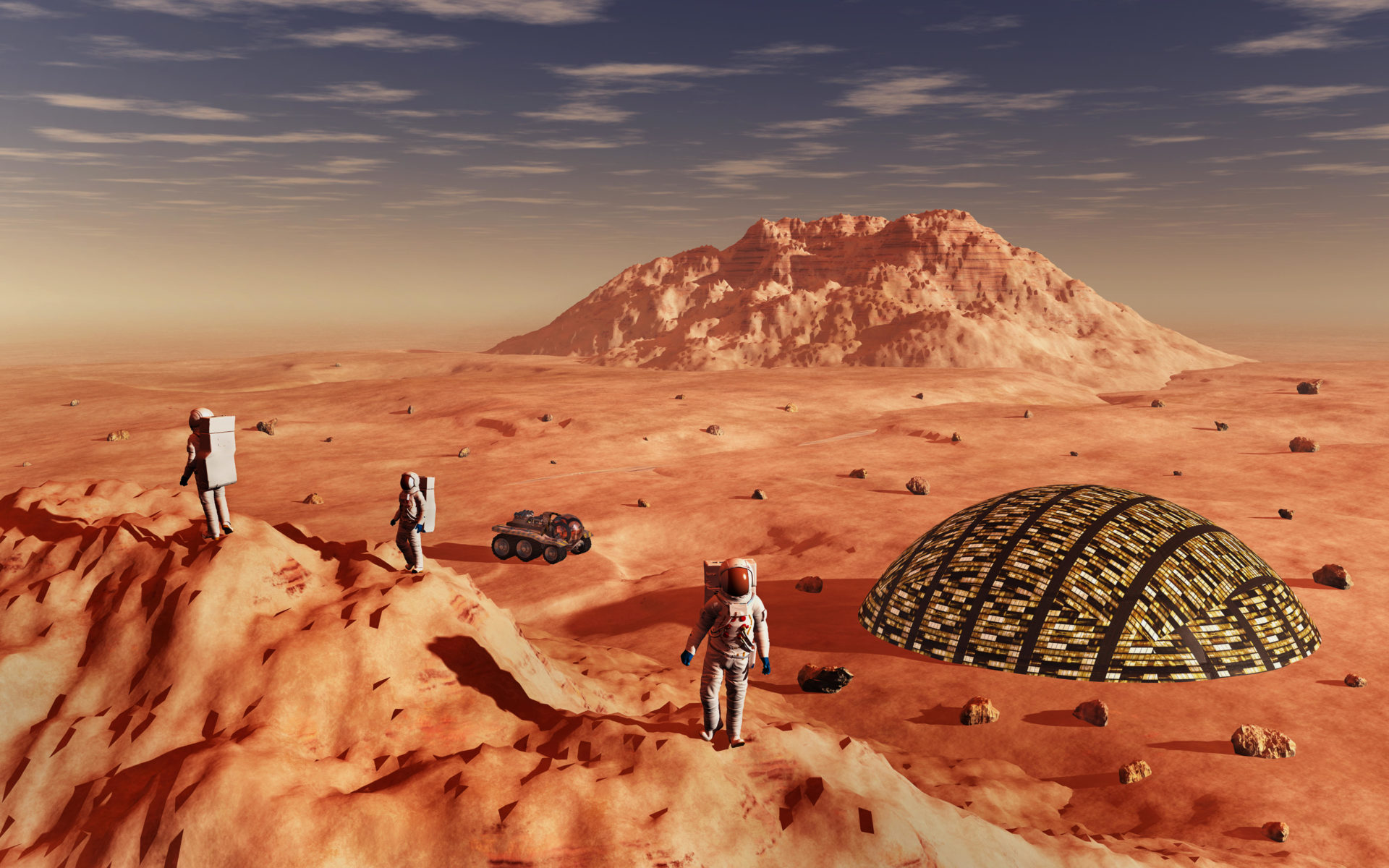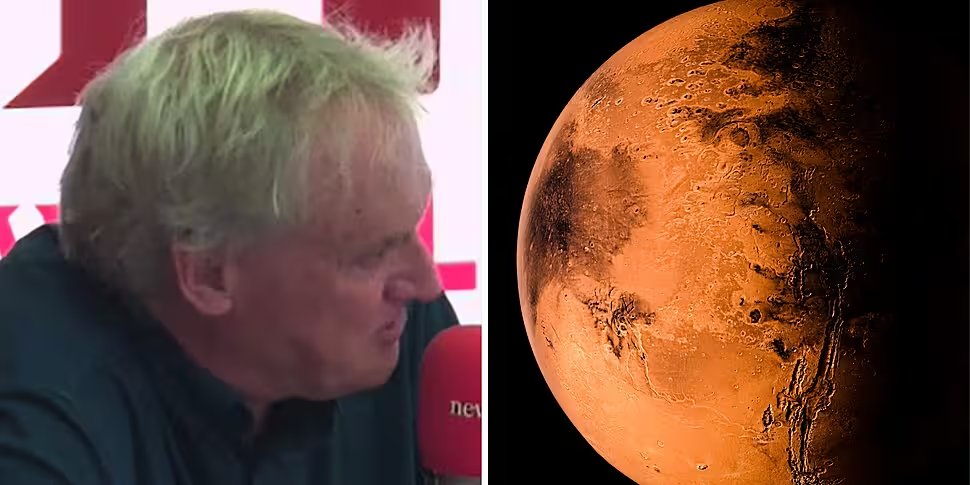Diverse experiences, background and ethnicities is key to forming a group that will travel to Mars and form a colony, according to Professor Luke O'Neill.
Year after year, humans get one step closer to creating the technology capable of sending a human mission to Mars.
Experts predict a human mission to the red planet could be possible in the next 15 to 20 years as the research expands.
However, while engineering is essential to make the spacecraft, Prof O’Neill told Show Me the Science it’s also essential to decide who is going to be on that spacecraft.
“This mission to Mars would take three years,” he said.
“You’re going to be in a confined space – they reckon the overall size of the spacecraft that will go there is about the size of an average campervan.
“Imagine being stuck in a campervan with people for three years.
“We like being together, we’re a social species, but anybody who remembers Christmas, by day three you can't wait to get out.”
 Simulated image of a Mars colony. Image: MasPix / Alamy Stock Photo
Simulated image of a Mars colony. Image: MasPix / Alamy Stock PhotoA recent study tried to dig deeper into the question of who can travel to and colonise the red planet through a simulation.
The simulation considered four personality types, Prof O’Neill explained: agreeable people who “are less inclined to be intensely competitive”, sociable people who “might not be thought of as important”, reactive people who often “have good technical skills”, and neurotic people “who get uptight about situations and worry a lot”.
The study found that, while it was previously thought hundreds of people would be needed to colonise Mars, we only need “about 10 to 50”.
The simulation found the highest failure rate among the “neurotic” personalities.
“There’s always a honeymoon period,” Prof O’Neill explained. “The first few weeks everyone gets on great.
“Then the traits begin to emerge – what emerges early on is depression kicks in and some people get very low... there’s also a lot of rudeness and shortness with each other.”
'Diversity'
The study found the best way to address this risk of depression is to make space travellers bond through shared meals and those space travellers are a diverse bunch.
“If you have people with different backgrounds and different experiences in their lives, that predicts a better environment,” Prof O’Neill said.
“It's partly because you're more interesting to each other, you can tell each other stories about your life and if you’ve all had the same lives there's not much to tell.”









